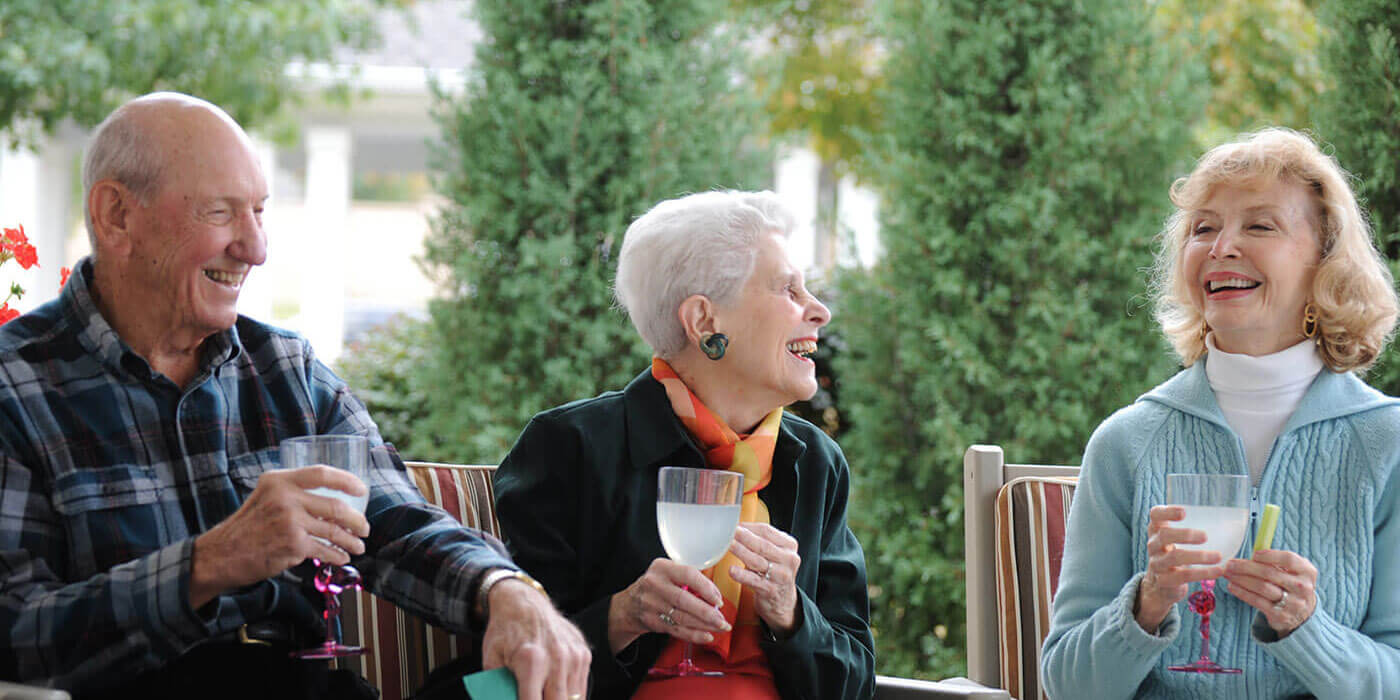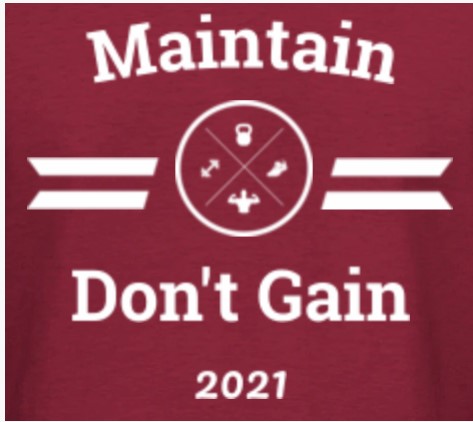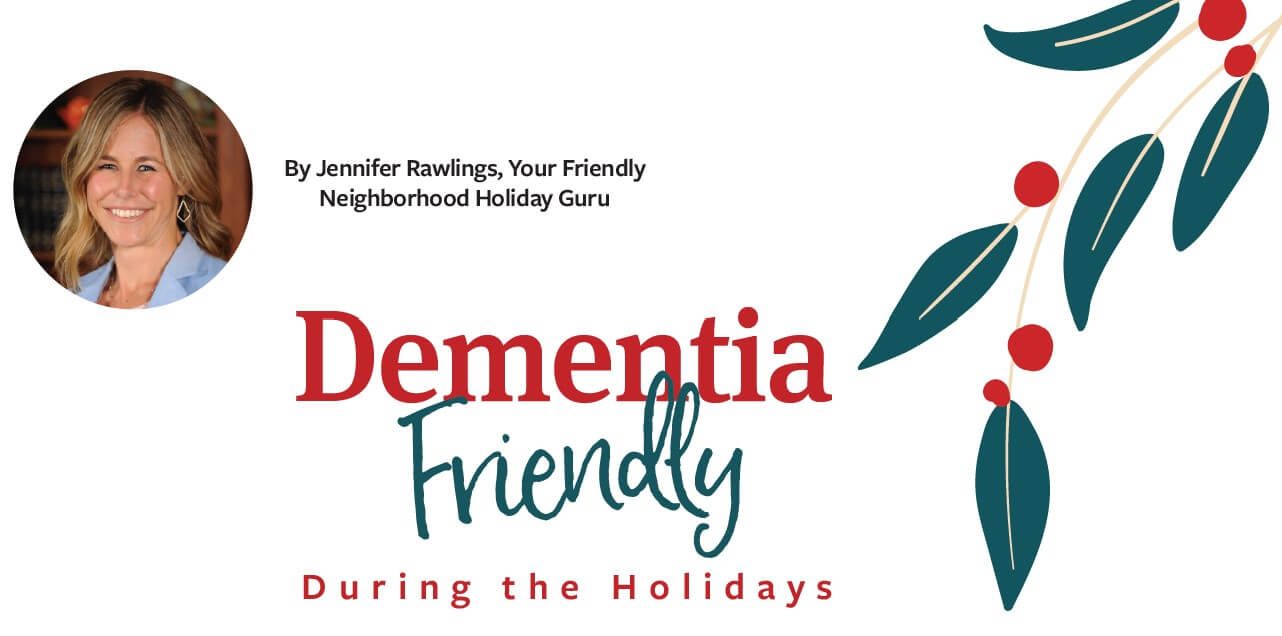By Alison McMillan, Wellness Manager
When I was a child, my grandmother used to sing to me, “Make new friends, and keep the old, one is silver and the other is gold!” I never knew what she really meant until I was much older, but the intention there was to encourage me to continue being social and to grow my connections past the handful I
already had. Social relationships and friendships are extremely important in our lives and make up one entire dimension of the Seven Dimensions of Wellness.
As we age, social well-being becomes even more important than ever. According to the CDC, social isolation and Loneliness are significant health risks, increasing the risk of developing dementia, depression, heart disease, and more. The CDC also reports that nearly one fourth of adults over the age of 65 can be considered socially isolated. Conversely, the National Institute of Aging reports that people who regularly engage in meaningful and productive activities tend to live longer lives, have greater
mood boosts, and report feeling a strong sense of purpose.
There are many ways to increase your social activity to better care for your social well-being. One of them is through physical activity! A study published in June of 2021 found that increased physical activity in women over 60 helped foster social links to improve social relationships. Try an exercise class or join a walking group – it’s a good way to boost your social life by meeting new people and exploring new friendships. Another way is to find a new hobby or activity to explore. Not only will you learn a new
skill, but you will gain lifelong connections with people eager to meet you and teach you their interest.
Trinity Woods offers so many social opportunities. From Wii Bowling to Bingo, Fun Fit Boxing to Tai Chi, Weavers and Pickle Ballers, Walking Adventures, Concerts, and programs like Meet the Chef and Supper and a Show, there are endless options for attending social events. Each one is designed to help you fully
engage in Seven Dimensions of Wellness. Remember: building connections can lead to a healthier you.
Category: Wellness Articles
Seven Dimensions of Wellness: Social
Stress, Depression, and Tips for Coping
By Lupina Fry, Wellness Nurse
This time of year is full of family, fun, and holiday activities, filling many with excitement. For others it can also come with stress and anxiety. According to the American Psychiatric Association 2023 survey on stress, most Americans downplay their stress. According to the survey 67% say their problems are not “bad enough” to be stressed about, feeling others likely have it worse. Additionally, when asked, 62% reported they don’t talk about their stress because they don’t want to burden others.
Stress itself is not the problem. The problems come with how a person manages their stress and the resulting effects on the entire body. It’s crucial to understand the mental and physical impact of stress and what can be done to reduce harmful effects. According to NAMI (National Alliance on Mental Illness) there is a correlation between prolonged stress and depression. Experiencing “holiday blues” is common. You may feel temporarily tense, frustrated, lonely, or even sad during the winter months. If those symptoms last longer than two weeks or affect your ability to function normally, it could be signs of
clinical depression, requiring medical intervention.
No matter the cause of your low mood or negative feelings, it’s important to have a toolkit of healthy coping strategies. Moving your body through exercise is one of the best ways to combat depression. Spending time in nature is also a great option. Sharing your feelings with trusted loved ones- family or friendscan also help.
People want to help; sometimes all you need to do is ask for it. Consider volunteering. Find a volunteer opportunity you feel passionate about and give it as much time as you feel comfortable. If someone exacerbates your stress or anxiety, limit time spent with them, even if it’s a family member. Singing, writing, painting, listening to music, prayer, and meditation can help lift your mood. Develop a list of your preferences for moodboosting activities. Attach this list to the fridge and refer to it as needed. Set limits with yourself and with others.
Using these tools if your negative emotions begin to take over can make a difference. And remember that if you need help, you should seek it out. Contact your doctor and let them know how you feel. Combating stress, anxiety, and depression is vital to your mental and physical health. It’s important to get the help you need.
Just Another Reason Exercise is Great for You!
By Alison McMillan, Wellness Manager
Scientists have been hard at work researching exercise, knowing that brain health is a top concern among older adults. We’ve seen studies that show that exercise reduces the risk of developing
Alzheimer’s. Imaging studies have shown that the hippocampus (the area of the brain that stores long term memories) is greater in volume in adults aged 59 to 81 who are more aerobically active than those who are not. Those same adults also showed better performance in memory tasks. Lastly, studies have shown exercise can lead to improved learning, attention, and memory for patients with early-stage Alzheimer’s, Schizophrenia, or brain injuries. Overall, studies indicate that exercise is beneficial for
brain health.
But how?
Researchers are studying hormonal and chemical changes in exercising mice, and have seen an increase in a chemical called Irisin, which is produced by muscles during exercise. This chemical was
found to boost protein levels in the hippocampus that promotes neuron growth and health in the brain. Irisin also was found to decrease the inflammation in the brain that causes Alzheimer’s and Parkinson’s. Knowing this, scientists are confident that the effect is similar in humans because the Irisin composition is identical in mice and humans. Studies already show that post exercise, there is a boost of Irisin levels in humans. In examinations of Alzheimer’s patients, Irisin’s precursor protein was 70% less than in patients without Alzheimer’s. This leads scientists to believe that Irisin is linked as protective to the neurons.
So, to summarize, exercise is great for brain health by helping new neurons and connections grow and be healthy and helps reduce risk for Alzheimer’s. All the more reason to go outside, or head to the gym for an exercise class or to use the machines every day!
Source: National Geographic “New clues are revealing why exercise can keep the brain healthy” June 2022
Spring Fling
By Lupina Fry, Wellness Nurse
When the weather thaws, plants begin to book and the days get longer, its Springtime, and nothing makes you feel better than being outdoors. We shouldn’t take the power of Spring for granted. While we enjoy more daylight, blooming flowers, budding trees, and the breeze on our skin after being covered for
so long, we should also consider how vital those things are to our basic needs as humans.
Perhaps rather than New Year’s resolutions, it would be best to initiate change in the Springtime when activity lures us outdoors and into the sunshine. A study in Brisbane, Australia, looked at urbanization as one of the most important health crisis issues of the 21st century, with cities becoming epicenters for chronic, non-communicable physical and mental health conditions. There is a growing recognition of the vital importance urban green spaces play in addressing public health.
Being outdoors regularly, an average of 30 minutes, can help reduce blood pressure, lower mortality from cardiovascular disease, improve perceived general health and mental well-being, decrease stress, and promote positive health behavior and activities, and it leads to less depression and loneliness.
At Trinity Woods, we are blessed to enjoy many beautiful, inviting green spaces around us. They are easily accessible by all; spaces that entice us outdoors in the Spring. As Alison McMillan, Wellness Manager, reminds us, “There are so many great ways to head outdoors and take advantage of the gorgeous weather.”
Maybe, you’ll find a trail or neighborhood sidewalk, soak up some Vitamin D, increase circulation, and reset your natural circadian rhythm in the sunlight. Consider planting an outdoor garden. It’s not only satisfying physically to dig in the dirt, pull weeds and prune flowers or vegetables, it’s satisfying to the mind and soul to connect with nature.
There are many ways to get outside and enjoy the Springtime weather. One of those ways is to join us outdoors for Spring Fling on Friday, June 2nd. Get together with friends, enjoy good food, maybe compete in a shuffleboard tournament, or just relax and listen to music from Tim Swanson. Join us outdoors! It’s sure to make everyone feel great about being alive!
Heart Month: Time to Love Your Heart
Since 1964, when President Lyndon B. Johnson issued the first proclamation, February has been dedicated as “American Heart Month.” Johnson was one of the millions of Americans to have suffered a heart attack. Today, cardiovascular disease is still the leading cause of death in America. According to the CDC, every 34 seconds one person dies from cardiovascular disease; that’s 1 in every 5 deaths. But you can still do a lot to protect your heart by practicing self-love.
In February much of the focus is on Valentine’s Day and sharing love with others. It’s also okay to practice self-love, too. Self-love is a state of appreciation for oneself that grows from actions that
support our physical, psychological, and spiritual growth. This can be a challenge to many, but it’s easier than you think to show your heart love each day.
Self-love means taking care of the spirit, mind, and body and making yourself a priority in your life. Some examples of some simple things are:
• Physical activity – a brisk 30-minute walk a few times a week.
• Cooking meals that are low in sodium and unhealthy fats.
• Getting 7-8 hours of sleep every night.
• Managing stress through activities such as yoga, meditation, and prayer.
• Spending time with good friends, or quiet time with a good book or funny movie.
• Grabbing fruits and veggies when hunger strikes and keeping well hydrated.
• Managing health issues such as diabetes and hypertension.
• Taking medications as prescribed and keeping medical appointments.
• Being grateful rather than holding resentments.
Remember, each day is another opportunity to succeed. It may require the help of friends, family, and health providers but the efforts are worth the gain. Loving yourself is worth the effort. Visit HeartTruth.gov for resources and tools to help you make heart healthy lifestyle changes.
Health and Wellness Fair
by Jennifer Rawlings, Your Health Fair Loving Guru
We are excited to extend an invitation to community members and friends to the Annual Trinity Woods Health & Wellness Fair! Come learn about offerings on campus and what is available from the surrounding community. The Annual Health & Wellness Fair will be held on Thursday, September 15th from 10 a.m. to 2 p.m. in the Community Life Center.
The Trinity Woods Wellness Team takes pride in providing members, family, and employees with opportunities to improve general health and wellness through the promotion of the seven dimensions of wellness. We feel that the Health & Wellness Fair plays a role in helping the community achieve whole person wellness.
At the fair you will have the opportunity to meet multiple health and wellness experts including but not limited to NAMI-National Alliance on Mental Illnesses which provides classes and support groups for families and caregivers of loved ones dealing with mental health issues, Oklahoma Senior Law, The Eye Institute, OK ABLEtech, MET Recycle, Oklahoma Bureau of Narcotics who will be taking old
medicines in any form and many other great vendors!
We are excited to host this annual event and look forward to seeing you.
Volunteer for your Health
April is National Volunteering Month. Did you know that volunteering is a reciprocal act? The benefits of volunteering can be improving mental health, making new friends, gaining a sense of purpose and connectedness, as well as boosting your overall happiness! Volunteering also enhances the programs and offerings at Trinity Woods. We would not have the robust programming if it were not for the volunteers. Community participation is what makes Trinity Woods the premier place to be. Let me say “thank you for all your efforts and dedication!”
Even during the trying times of 2020 members found ways to volunteer on campus. Some of our long-standing opportunities were put on hold, some were able to be adapted throughout the year, and new opportunities were created. As we celebrate National Volunteer Month, we want to celebrate the 140 on campus volunteers from 2020.
Here are just some of the ways people volunteered: Bargain Basement, Caring Mat-ters, Fifth Thursday, Food Committee, Health Center Volunteer, Holliman Center Volunteer, Event Help, Libraries, Manor Bears, Manor Mirror, Marketing Ambassadors, Member Council, Movie Nights, Needlecraft, Program Presenters/Organizers, Screenwatchers Guild, Worship and Spiritual Life, Pianists, Walk and Rollers, WAC, Thanksgiving, CLC Planning, Development, Spann Set-Up, Welcome Wednesday, and the Safety Committee.
If you are interested in volunteering, please contact Irene Brown at 918-346-6614 or ibrown@trinitywoodstulsa.com.
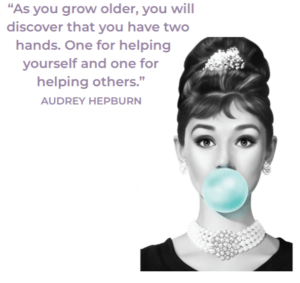
Moments in Black History by Chaplain Weldon Tisdale
Mary Ellen Pleasant
Mary Ellen Pleasant was born on Aug. 19, 1814 in Virginia and spent her early years in Nantucket, Massachusetts. She worked as a bond servant to the Hussey family, an abolitionist family. She later married James Smith, a wealthy former plantation owner and an abolitionist. Mary Ellen and James worked on the Underground Railroad. After Smith’s death four years later, Mary Ellen continued her work as a conductor on the Underground Railroad.
Mary Ellen married John James Pleasant around 1848. To avoid trouble with slavers for their abolitionist work, the couple moved to San Francisco, California in April 1852. Mrs. Pleasant established several restaurants for California miners, the first named the Case and Heiser. With the help of clerk Thomas Bell, Mrs. Pleasant amassed a fortune by 1875 through her investments and various businesses by 1875. She also helped to establish the Bank of California. Making her one of the wealthiest and most influential Black Americans in history.
Pleasant earned her title as the “Mother” of California’s early civil rights movement, establishing the local Underground Railroad. She financially supported abolitionist John Brown from 1857 to 1859. In the 1860s and 1870s, Mrs. Pleasant brought several civil rights lawsuits in California, especially against the trolley companies, most of which she won.
During the 1880s, a smear campaign by the widow of Thomas Bell damaged Mrs. Pleasant’s reputation. Local newspapers began to taunt her with the pejorative title “mammy,” which she reportedly hated. She never recovered her prestige from this campaign. Mary Ellen Pleasant died on Jan. 4, 1904.
Measure It So You Can Manage It – The Challenge Results Are In!
by Jennifer Rawlings, Your Friendly Neighborhood Measuring and Managing Guru
This year’s Maintain Don’t Gain Challenge was a huge success! We are excited to report the Trinity Woods community is definitely up for this annual fitness challenge. Each year as a Wellness Team we like to brainstorm what we can do to help our community members and employees set and reach their health goals.
We view this challenge as an important opportunity for setting goals in the holiday season and conscious of your body composition and diet. The goal is to help members and employees recognize and understand that weight is composed of multiple factors. We often get too caught up in the number on the scale rather than considering aspects of muscle mass and body fat. The challenge was not merely based on weight. The challenge was for participants to maintain or lose body fat over the holiday season. To
meet the challenge, you could not gain 5 lbs or more of body fat.
While the results are still coming in for the Trinity Woods employees, we can inform you that the Trinity Woods community members met the goal this year as 96% of those participating successfully completed the challenge. A total of 56.7 lbs of muscle was gained and 105.5 lbs of fat was lost over the holiday season! That makes this wellness challenge our most successful one yet. Way to go TW Community!
Be Well in the New Year
by Jennifer Rawlings, VP of Wellness
What if your health and well-being were your job? What if it was your top priority? It is the time
of year when most people set their goals and then want to see instant results.
I encourage you to resist the temptation to give up, especially if you don’t see immediate results after the first two weeks. Your health is a work in progress. You must find what works for you. Your success is built upon failures and trials. Never quit when you are struggling; you only fail when you quit. As long as you are working toward your goal, you are making progress. It doesn’t matter how slow or how fast you are going as long as you keep going. You are
worth it!
If your health is something you think about every day or even if it is something you only think about when you have to, you are still making progress by thinking about it at all. Your health is the product of small choices you make every day. Remember skipping one workout or eating one dessert doesn’t make you unhealthy and doesn’t derail your goals. However, skipping a workout more often than not and fueling your body with processed foods will take you farther and farther away from your healthy goals for wellbeing!
Make your health a priority to make your life better. Being well is not a punishment to your body, it is something you are doing that is good for you. Celebrate, embrace, and be proud of being well. It’s all about your mindset.
Love yourself and allow the struggle to help you grow. Enjoy the process; remind yourself of the small wins and focus on where you want to go. You owe it to yourself to do the best you can and invest in you!
Leave it Behind and Move Forward
by Weldon Tisdale, Trinity Woods Chaplain
The beginning of a new year is an opportune time to start afresh. Don’t let 2022 just be another year
of moving forward – make it a year of leaving some things behind. Past hurts, failures, pains, decisions…
are often weights that hinder our ability to move forward. Even good things that are energy drainers could potentially need to be left behind. If you have done something you thought was meaningful without getting meaningful results, maybe, it’s time to leave it (or them) behind as well.
Actually, any unnecessary weights or baggage should be left behind. Sometimes that includes individuals who have become baggage by occupying too much of your time, space, and energy, unnecessarily. Leave them behind and
love them from a distance.
Ultimately, the most difficult thing to do is move forward when you are totally focused on the past.
As one who was intimately aware of hurts, pains, beatings, and shipwrecks in life, the Apostle Paul teaches us the importance of forgetting past things and moving forward. He encourages us to press on towards a greater prize.
Just a reminder: faith is the key element for moving forward. Your heavenly Father did not create you to live a life of mediocrity – you were created to live life in the faith lane. The faith lane is not to be mistaken for the ‘fast lane’ because often it is just the opposite. Patience will be required as you embark on the new.
There is so much more ahead of you than behind you. Like Paul, let it go, leave it behind and move forward.
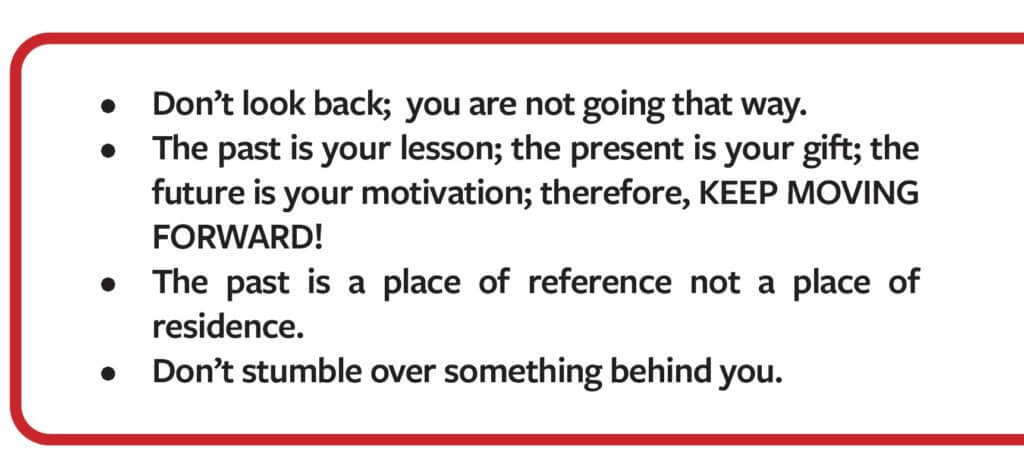
A Dementia Friendly Holiday
by Jennifer Rawlings, VP of Wellness
The hustle and bustle of the holiday season is upon us, and you may be wondering what is it going to be like this year? Will it be “normal?” Will it be different? This is probably true if your family has a loved one living with dementia. One thing is certain, the holidays will still come, and they will still be celebrated.
For many families who have someone living with dementia it can add another layer of anxiety. Within the United States, there are at least 5 million people currently living with age related dementias. To put this into perspective, it’s estimated that one out of every six women and one out of every 10 men, living past the age of 55 will develop dementia. So, the odds are that you know someone living with dementia.
At the end of the day most of us do our very best to make sure all our family and guests are happy and are having an enjoyable time. Here are some helpful tips to welcome loved ones and friends living with dementia this holiday season.
Be Flexible – Go into the holiday season knowing it might look different than you think – be flexible with your plans. Changes may be necessary, have a “Plan B”. If your loved one becomes agitated by large gatherings, have a quiet place you can take your loved one to rest. Maybe have family come a few at a time to talk with them instead of all at once. Give them some space if necessary.
Respect Routine – For some living with dementia the holiday season can be disruptive to their daily routine causing them to be uncomfortable or even act out. Routine is highly important for managing symptoms of dementia and any changes to their daily schedule, seeing unfamiliar faces or being in large groups could upset someone with dementia.
Preparing Family – Talk to your family and guests prior to the gathering. Let others know the ways you have found to have successful interactions.
Other things to discuss might be:
• The stage of dementia and what symptoms they might see.
• The daily routine and why it’s important.
• Being patient during conversations, without correcting or questioning.
• Don’t be offended if he/she forgets you, live in the moment.
• Don’t say “don’t you remember” or “I’ve already told you that.”
If your normal family get-together now looks different, that is ok. There are still ways to enjoy this special time of the year. Just keep it simple. And most important – remember to take time for yourself. The best caregiver is a caregiver who takes care of themselves as well.
Dementia takes different forms for everyone and people living with dementia can thrive with the support of their family and community. Whether they are able to express it or not they are thankful for you as I’m sure you are thankful for them.
Stats from Dementia facts & figures | Alzheimer’s Disease International (ADI) (alzint.org)
Take Control of the Holidays – Over Coming Holiday Stress
by Weldon Tisdale, Trinity Woods Chaplain
Philippians 4: 6 “Don’t worry about anything; instead, pray about everything…” (NLT)
This scripture is direction given from the Apostle Paul for dealing with stressful times and certainly, the holiday season often brings unwelcome guests like, stress and depression. And it’s no wonder. The holidays present a dizzying array of demands — parties, shopping, baking, cleaning and entertaining, to name just a few. At times, holidays will bring back memories of loved ones passed on often adding an additional level of
coping. But with some practical tips, you can minimize the stress that accompanies the holidays. You may even end up enjoying the holidays more than you thought you would.
TIPS TO PREVENT HOLIDAY STRESS AND DEPRESSION:
Acknowledge your feelings. If someone close to you has recently passed or you can’t be with a loved one, realize that it’s normal to feel sadness and grief. It’s okay to take time to cry or express your feelings. You can’t force yourself to be happy just because it’s the holiday season.
Reach out. If you feel lonely or isolated, seek out community, religious events or other social activities. They can off er support and companionship. Volunteering your time to help others also is a good way to lift your spirits and broaden your friendships.
Be realistic. The holidays don’t have to be perfect or just like last year. As families change and grow, traditions and rituals change. Choose a few to hold on to and be open to creating new ones.
Set aside differences. Try to accept family members and friends as they are, even if they don’t live up to all your expectations. Set aside grievances until a more appropriate time for discussion. And be understanding if others get upset or distressed when something goes awry. Off er them “grace” because chances are they’re feeling the effects of holiday stress and depression, too.
Stick to a budget. Before you go gift and food shopping, decide how much money you can afford to spend. Then stick to your budget. Don’t try to buy happiness with an avalanche of gifts.
So, take control of the holidays. Do not allow them to become something you dread. Instead, take steps to prevent the stress and depression that can descend during the holidays. Learn to recognize your holiday triggers so you can combat them before they lead to a meltdown. With a little planning and some positive
thinking, you can fi nd peace and joy during the holidays. And remember, “Do not worry about anything, instead pray about everything.”
Adapted from MayoClinic.org article.
